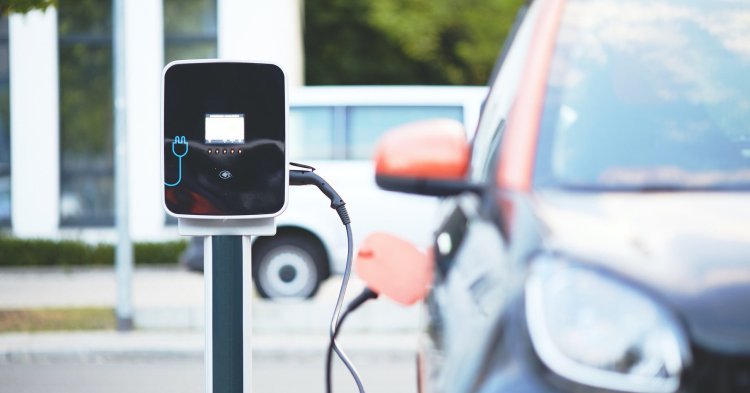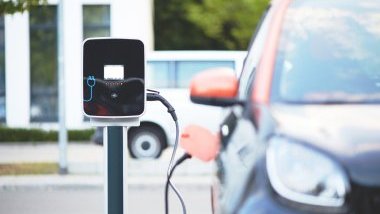In 2020, a year characterised by pitiful economic figures, sales of electric cars in France rose sharply. That is all the more impressive given that sales for diesel and petrol vehicles decreased by 33% and 40% respectively. In Germany, the number of electric car registrations tripled compared to 2019, reaching more than 194,000. But the two largest countries in the European Union are still far behind Norway, where one in every two cars on the roads is now electric. These figures are proof of a fast-growing market which has moved from a niche to mass production.
Could combustion vehicles be banned?
TheLoi d’orientation des mobilités (Mobility Orientation Law), passed in December 2019, aims to ban the sale of cars that use fossil fuel in France from 2040 on. This type of law cannot simply be applied against such an important economic sector overnight, especially as such a time projection must serve as a plan for the gradual decarbonisation of the sector. This is why, in January 2021, France issued a new penalty for the sale of vehicles emitting more than 133g/km of CO2 – around what a typical small petrol-powered van generates.
The proposals issued by the Convention citoyenne pour le climat (Citizens’ Convention for Climate – one of President Macron’s citizens’ assemblies)could allow this trend to accelerate, by setting the government deadlines to reduce this market through a draft bill. In January 2021, the French cabinet announced it was working on this bill, which will lead to fines for vehicles emitting more than 128g/km of CO2 in 2022, then 123g/km in 2023. This reduction in the emission tolerance threshold anticipates that in the year 2030, the sale of all combustion vehicles in the country will simply be prohibited.
The UK has also announced it will ban the sale of petrol or diesel cars by 2040, paving the way for an EV boom.
Will the rest of the EU follow suit? The European Commission is expected to present its policy framework in June 2021, following the strengthening of its overall greenhouse gas target in late 2020. Its aim is now to reduce greenhouse gas emissions by at least 55% compared to 1990 emissions by 2030 – something which may be difficult to achieve without restrictions on combustion cars.
The heart of the electric car’s development
In addition to the measures facilitating the development of the electric car market, the battery, an essential part, has its own challenges. The first one is an everyday concern: battery life. Battery technology has always been a main focus for car manufacturers, since without it, the battery life of their product could never be as long-lasting as that of combustion cars. The economic aim is clear: replace the combustion car with the electric vehicle (EV). At present, the majority of EVs can travel around 350km fully charged. Meanwhile a standard city model petrol car can reach as far as 500km before running out of juice.
Another challenge is cost. However, the price of batteries has already fallen sharply over the past ten years. A recent report found lithium-ion batteries (the most common technology) are now eight times cheaper than in 2010. EV batteries now cost, on average, €113.42 ($137), reducing the total price of the car. This swift decline in price – which is predicted to continue over the next decade – will undeniably make the electric car market more accessible to a wider public.
The EU, too, is investing in better batteries. It launched the“Airbus of batteries” in 2019 with seven countries (Germany, France, Italy, Belgium, Finland, Sweden, and Poland). The project, the European Battery Alliance (EBA), aims to unite European manufacturers in the research and development of new battery technologies, with the help of €3.2 billion in public aid.
Planetary and ecology issues
Another major problem with EV batteries lies with their production. In 2020, half of all lithium batteries sold in the world were made in China, due to its abundance of rare-earth metals and cheap manufacturing capabilities. The global demand for lithium is set to increase 20-fold in the next 15 years.
Faced with this surge in demand, China is not only relying on its own resources but is also investing in other mines across the world. In Bolivia, for example, China has recently set up a lithium refining plant. Large-scale production is concentrated at Salar de Uyuni, the famous salt flat of around 10,000km², which was estimated in 2010 to have 50% - 60% of the world’s lithium reserves. This could be seen as a blessing for a country which has not yet developed a demand for rare metals in its own domestic market.
The Bolivian salt flats. Photo by Eduardo Gutiérrez on Unsplash
However, many fear the unique landscape will be damaged irreparably by the vast scale of the mining operation, which requires huge water reserves and generates chemical waste. Lithium mining has already been blamed for air, water and soil pollution at many sites around the world.
But that is without considering cobalt, neodymium, graphite, or the many other materials needed to make batteries, or an entire EV. Mining, refining and transporting each of these materials is often polluting and brings mining companies into conflict with native populations.
In a bid to rely less on mining new materials, legal measures have been introduced in the EU concerning recycling of EV batteries. A 2006 European Directive makes recycling batteries compulsory for manufacturers. In France, the Environment Code reflects this obligation, given that electric car batteries are considered to be “industrial accumulators”, and are therefore subject to the same rules.




Follow the comments: |
|
